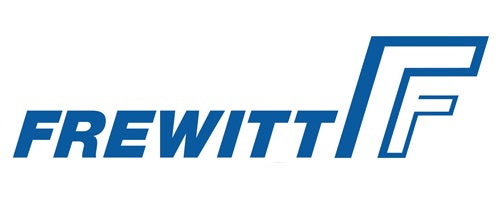
The demand for turnkey solutions in the pharmaceutical processing industry is increasing yearly. Pharmaceutical and fine chemical companies have less in-house engineering and project management resources than a decade ago, meanwhile the importance of preserving API characteristics is more relevant than ever before.
The number one reason companies choose the turnkey approach is to simplify process development and installation. A complete end-to-end solution covers everything, from the handling and transport of raw bulk material, to dosing, controlled and monitored milling, and weighing – or transport to a downstream process for additional milling or powder handling.
With a turnkey provider, customers do not need to be concerned about coordination and compatibility between multiple suppliers. Seems straightforward, but there are four key additional factors that must be taken into consideration:
- Material safety: The toxicity of many active ingredients means that the process must be designed for containment at a specific OEB level to protect worker safety. An example is cytotoxic products for cancer therapy. The protective measures required by the OEB level will impact the design and execution of the installation.
- Minimum ignition energy: Certain products have low ignition thresholds that require additional anti-explosion measures: ATEX execution, nitrogen inerting, and oxygen level management, to name a few. The ATEX or NEC class/division requirements will play a deciding role in the execution of the installation.
- Physical product characteristics: The friability, humidity, susceptibility to oxidation, hardness, softness, elasticity, bulk density, and the product’s temperature sensitivity, all factor in to determine the optimal milling process and therefore impact the upstream and downstream design too.
- Automation level: The level of automation required by the customer and the management requirements of the previously mentioned risk factors will have a profound impact on the conception and design of the turnkey installation.
According to Roy Housh, Commercial Director at expert milling company Frewitt, the risk and complexity of these four factors can variate in a countless number of possibilities. Installation requirements are unique for every turnkey project, and as such it is critical that a process-driven engineering company with a wide and in-depth knowledge of material science and bulk solid handling experience is selected.
“The processes and the subsequent installation must be adapted to the product. Pharma products cannot be modified to adapt to a standardised equipment setup. Their active properties must remain intact. Third-party engineering houses have sound engineering knowledge but lack the product and process knowledge,” he explains.
Starting at the core
Milling to obtain a specific particle size distribution (PSD) while protecting the product’s active characteristics is at the heart of any project. Frewitt has over 75 years of experience in milling and micronization. Starting with the core process, Frewitt designs outwards to provide the upstream and downstream engineering and automation that enable customers to achieve the process safety, quality, efficiency, and repeatability they require.
This involves thorough studying of the customer’s user requirement specification (URS) to determine if it is compatible with a successful process. If necessary, Frewitt may make recommendations to improve the URS in order to achieve the optimal PSD and throughput requirements while protecting the active product characteristics.
The demand for Frewitt’s completely engineered solutions is growing year on year, with customers valuing the company’s in-depth process knowledge and experience above all else. “There is a very good chance that Frewitt has already processed the same material or other material with similar physical properties and risks. This allows for a faster, more comprehensive, and adapted proposal, most likely with fewer engineering hours, hence far less costs,” explains Housh.
In addition, Frewitt’s state-of-the-art laboratories and staff of material scientists based in Switzerland can quickly confirm that a process is ideal before elaborating the concept of any installation design. On the other hand, third-party engineering firms are neither equipped nor possess the laboratories and material scientists to choose and validate an optimal process.
From individual modules to completely engineered solutions
All Frewitt equipment is designed to be completely compatible. For material handling, the company offers proven technology that can ensure a controlled conveyance of product from any bulk container.
In addition, high-precision dosing devices, controlled filtering, inline product sampling, bagging stations, and weighing scales are some of the key modules that complement Frewitt’s renowned milling and crushing technology. Standard and customised WIP, CIP, and SIP designs are compatible with the company’s equipment, meanwhile all Frewitt components are controlled by Frewitt’s HMI/PLC.
Frewitt modules are designed to conform with the entire installation in terms of hazardous zones, ATEX, or NEC class/division. Complete N2 and O2 management modules from Frewitt are available and compatible with all Frewitt equipment, permitting the installation to respect the hazardous zoning.
Delivering results
With the implementation of each turnkey project, Frewitt is delivering real results for customers. “The responses have been very satisfying,” says Housh, who lists reduced equipment costs, greatly reduced engineering costs, easier project management, faster delivery times, smooth and fast start-ups, and short validation times amongst the positive feedback from customers.
Looking to the future, he concludes: “Along with milling and sieving machines, we expect customised engineering solutions to become another pillar of our annual business. Process expertise and engineering expertise are synonymous with customer satisfaction.”
To find out more, download the whitepaper below.


